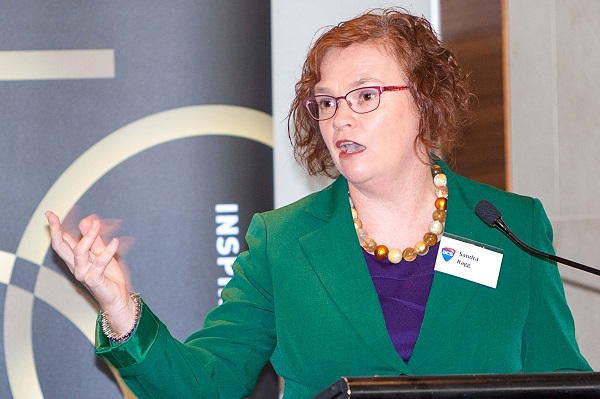Dear Australians, please stop clicking on malicious links in emails. You are compromising your system, your information and your network.
That’s the message from Sandra Ragg, Assistant Secretary Cyber Policy Office of the Cyber Security Special Adviser, Department of the Prime Minister and Cabinet.
Speaking at the IFIP Cyber Resilience Forum, Ragg said Australians needed more education and awareness about the damage that could be inflicted when clicking on a rogue link.
"Surveys have shown that people are pretty gullible when it comes to clicking on malicious links" she said, “but we need to go harder, we need to go faster, to keep up with the rapid evolution of cybersecurity threats.”
Australian cybersecurity has received $230 million injection across a range of initiatives as part of the Prime Minister’s Cyber Security Strategy launched earlier this year.
Compromising your system, whether at work or at home, required users to be more diligent, according to Major General Stephen Day, former Head of Cyber at the Department of Defence, now inaugural Head of the Australian Cyber Security Centre.
"Ninety per cent of all the successful compromises that we saw actually came from human error. Cybersecurity is as much a human problem as it is a technical problem."
Day said that while cybersecurity is “senior leader business”, it's not something you can simply leave to your CIO or IT department, adding that the C-suite and boards need to own the risk.
Elly van den Heuval, Secretary to the Dutch Cyber Security Council, agreed.
"Boardrooms still think that cybersecurity is only the responsibility of the CIOs."
Providing a European perspective, she revealed cybercrime and cyber-enabled crime has in some European countries has now surpassed traditional crime.
"Is the police force ready to deal with this?"
Van den Heuval offered advice for companies and governments alike. "Your products and services should be built in a cyber-secure way. Make sure that you invest in the cybersecurity of your non-critical infrastructure, they are always a part of your supply chain, and a chain is only as strong as the weakest link."
The Hon. Philip Dalidakis MP, Victorian Minister for Small Business, Innovation and Trade, said that a more digitally connected world offered huge opportunities, but that threats were also immense.
Referring the recently established Oceania Cyber Security Centre (OCSC) in Victoria, he noted that while continued research was key, it was important to turn this into products and as a result commercialisation will be "at the forefront of everything that they do".
He also stressed the importance of cybersecurity to the Australian economy.
"If people don't have confidence and trust to trade, to buy, to sell, or to undertake commerce within an e-commerce world, then that's one of the quickest ways that we have to ensure that society starts to regress."
The forum closed with the launch of the ACS Cybersecurity: Threats, Challenges, Opportunities guide, an easy to read guide aimed at business leaders and decisions makers on the threats and opportunities of cybersecurity, by the Hon. Philip Dalidakis MP and ACS President Anthony Wong.









